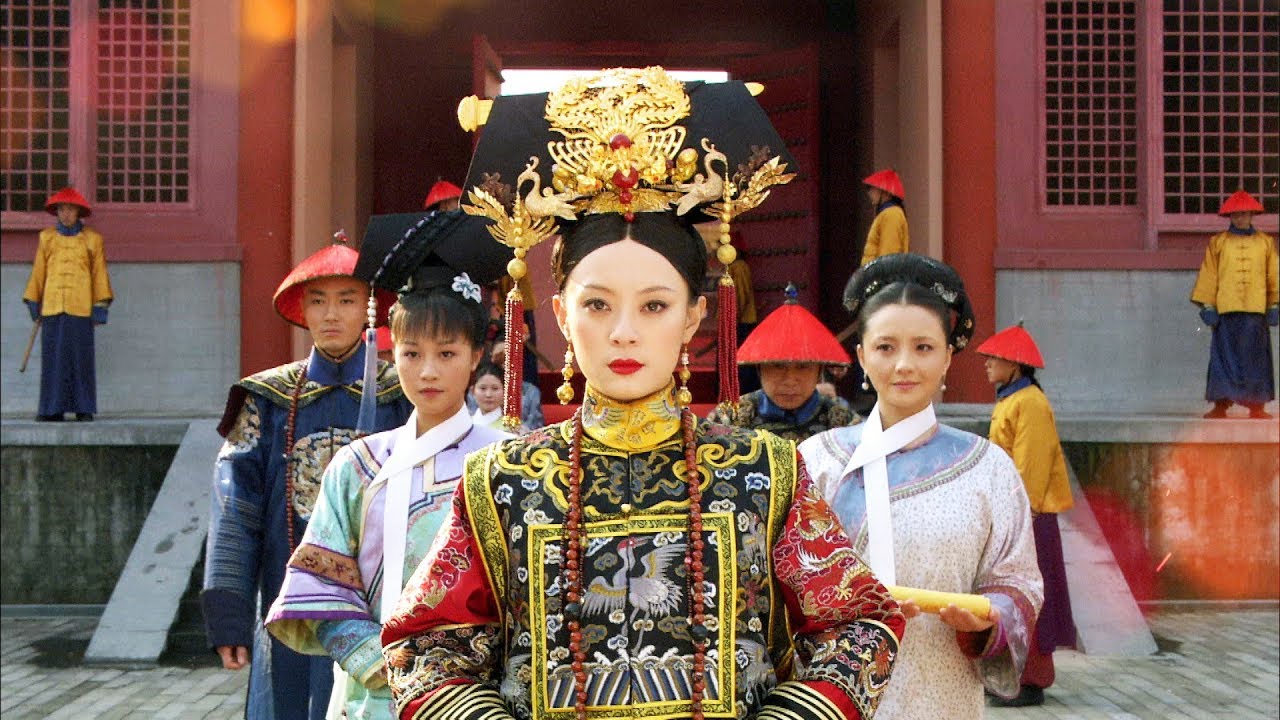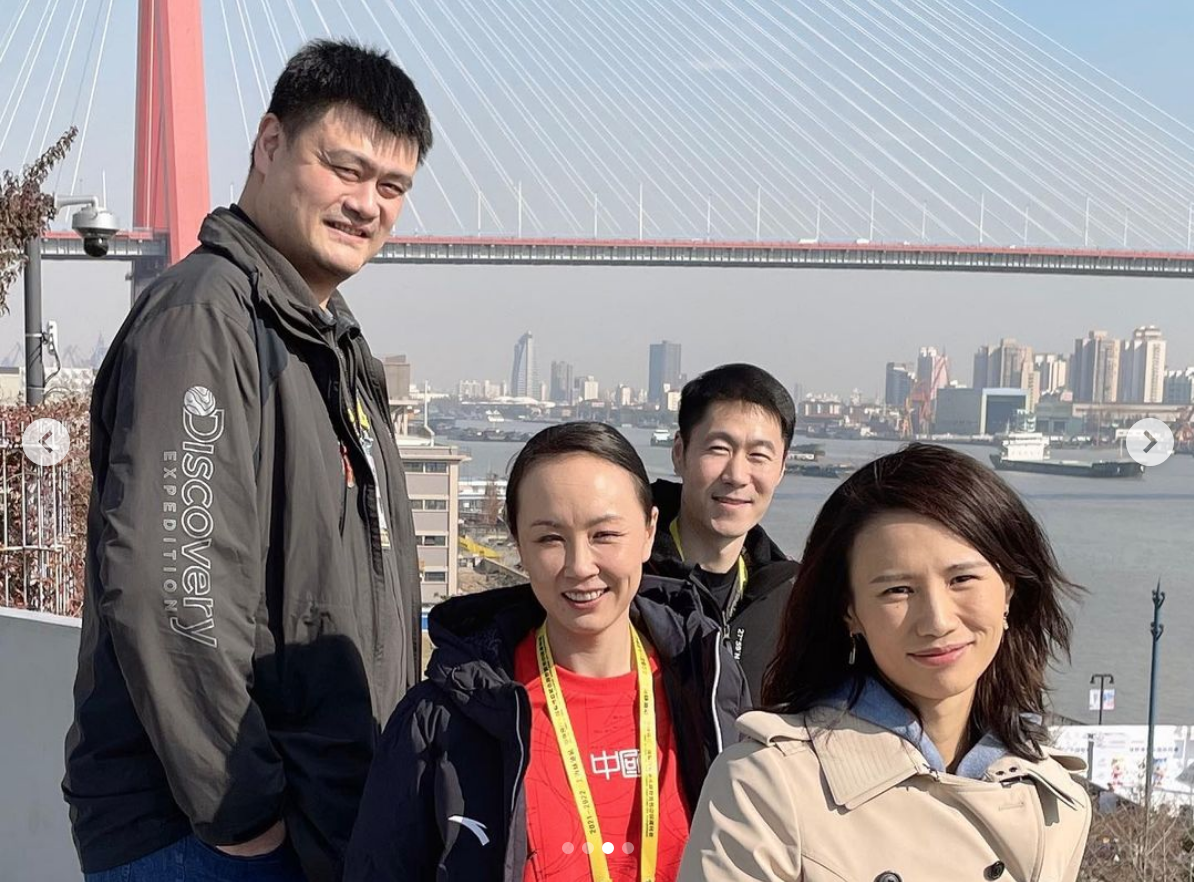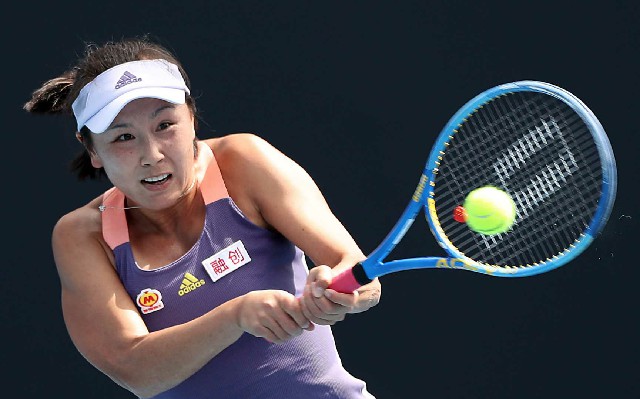Chinese tennis player, Peng Shuai, is damned if she speaks, damned if she doesn’t.
After a social media post on China’s Weibo platform was pulled by censors in early November, which detailed a long term on-again off-again relationship with former Vice Premier Zhang Gaoli, some have made great mileage out of headlines screaming she had been sexually assaulted, had been ‘disappeared’, and was not free to talk.
This past weekend in a video from the sidelines of a cross-country skiing event being held in Shanghai she said:
“I have never said or written that anyone has sexually assaulted me…I have to clearly stress this point.”
The video was posted by a Singaporean Chinese language media outlet available in mainland China with the former player also saying, “people have many misunderstandings” about her original post.
She also addressed the disappearance claims by saying she had been living at home in Beijing without supervision.
The governing body of women’s tennis, the Florida based WTA, issued a statement saying the recent video has not addressed its concerns about her wellbeing and referenced again ‘her allegation of sexual assault’, despite Peng saying she never made such an allegation.
The WTA said:
“We remain steadfast in our call for a full fair and transparent investigation, without censorship, into her allegation of sexual assault, which is the issue that gave rise to our initial concern.”
Earlier conversations between Peng and the International Olympic Committee have also been derided by much of the mainstream – mostly western – media as a staged effort to kill a negative story ahead of Beijing’s February winter Olympic games.
An email supposedly from Peng to the WTA in the middle of November said their reference to her alleging ‘sexual assault’ was not true, and asked if they were going to publish any more news about her could they please verify it with her first. An English translation of the email appeared on Chinese television.
Not many in the English-speaking world believed Peng had written the email.
Peng was asked about it in her weekend interview.
She said she had personally written the email to the CEO of the WTA, Steve Simon and that the English translation of it by Chinese state media was accurate.
A quick scan of twitter today shows many in the west are still refusing to believe what Peng says, which is interesting, given they have no problem still believing what they thought she said in her original Weibo post.
So, what’s going on?
Two weeks prior to Peng’s alleged disappearance, her lengthy Weibo post was online for around twenty minutes before being pulled by China’s notorious sensors.
There have been hundreds of headlines emanating from the post, almost all of them referring to Peng’s allegations of ‘sexual assault’, and yet, that is not what she wrote.
The post is written in the style of an open letter to the former Vice Premier of China Zhang Gaoli. It was written by Peng one night in November after he failed to contact her despite saying he would.
Peng writes of burying her feelings for the man she’d been in a relationship with before he was promoted to one of the most senior positions inside the Politburo upon which their relationship was brought to an abrupt end.
It became apparent to Peng that as Zhang’s political status rose it was unlikely that he would ever divorce his wife, meaning there was no longer room for her.
Before his promotion Peng seemed to have spent periods either in Zhang’s home, or close enough to it to have a relationship with Zhang’s wife, even when he wasn’t there.
“Every time you were away your wife would say all these ugly and insulting things to me behind your back, her words dripping with mockery and sarcasm. When I said I like to eat duck tongue, your wife would tell me – Eh, it’s disgusting. In winter, due to the smog in Beijing, I said that sometimes the air is not so good. Your wife would tell me that the air was only bad in my suburb, and that she didn’t feel it. She said a lot of things like that. When you were around, she didn’t say anything like that, acting is if she was one of us.”
When Zhang retired in 2018, he got in touch with Peng again, reigniting the flame. But it was not as she imagined. It is this part of the post that has been reported as sexual assault:
“Since you were not going to take responsibility for our relationship, why did you come back to me, take me to your house and force me to have sex with you?”
Certainly, if the reader stops there, it is an allegation of sexual assault.
However, should the reader continue there is a much more complex, deeply layered story that involves confusion, turmoil, emotion, refusal, coercion, and consent.
“That afternoon, after I refused you, I just couldn’t stop crying. I ate dinner with you and your wife…you said many, many things, just to make me let go of my mental burden. After dinner, I still didn’t want to do it, so you said you hated me! You also said that you’d never forgotten about me in the past seven years and that you would treat me well etc. I was afraid, I was panicking, but I was also carrying all the feelings I had for you during those 7 years. So, I agreed. Yes, we had sex.”
Towards the end of her lengthy post Peng writes:
“Feelings are a very complicated thing, and it’s hard to explain them clearly…you talked to me about your knowledge of the world, and we talked about economic philosophy and other endless topics.
“We played chess, sang songs, played table tennis, billiards, and of course tennis, which we could always play happily together. Our personalities were so compatible, as if everything matched…You told me that you loved me, loved me very much, and that you always hoped that in the next life we would meet as a 20 and 18 year old.”
At times Peng writes of a happy, mutual relationship. At others she is tormented by its secretive nature and the circumstances surrounding it.
Again, to add a layer of complexity to what has only been reported in very basic black and white terms, there is reference to a well-known Chinese television drama.
“Your wife acted like the empress from the TV show “Empress in the Palace”, and I can’t even describe how unbearable my situation was.”
The 2011 hit Chinese television series Empresses in the Palace won more than a dozen awards for best television series, best drama, best director, best actress, best actor, best new actor, and more.
It’s all about the complex relationships between the concubines of a Qing Dynasty emperor inside the palace where they fight for his attention.

The empress holds the trump card in terms of hierarchy. But when the emperor begins to favour one consort over everyone else, the empress outwardly tolerates the situation while secretly hatching a plot to bring down the woman who is occupying her husband’s attention. It is a scheming tragedy of love and jealousy.
Hence the reference.
Peng speaks of confusion and guilt, of contemplating whether the affair should continue. Ultimately through the despair of having nowhere left to place the love she says she felt, she speaks of feeling used and discarded. Her original, now deleted post, finishes with this:
“You always said that you hope your mother was looking out for you from heaven. I am a bad girl and I am not worthy of being a mother. You are a father with a daughter. If it was your own daughter, would you force her to do this? Will you face your mother with peace of mind after all the things you have done in this life? We are both sanctimonious.”
Imagine for a moment Peng Shuai was not Chinese. See her for what she is, and her story for what it is: a real person, an athlete, now caught in the middle of an ideological battle partly waged in the media between China and the west.
This weekend she appeared chatting happily with some of China’s most recognised athletes – Hall of Fame basketballer Yao Ming, Olympic gold medal sailor Xu Lijia and Olympic gold medal table tennis player Wang Liqin.

It is unlikely anybody, other then Peng and Zhang Gaoli, will ever know the full details of their affair but it is not anyone’s place to turn suspicion into fact to support the view we see through our own culturally tainted glasses.
Even the conclusion of the latest newswire story shows how we view others differently to our own:
“She wore a black jacket with a China flag and a red T-shirt with the characters for China.”
Ask yourself, for example, when was the last time we finished a story about a former Australian Olympian on the sideline of an event where she was supporting others, with this:
“She wore a green jacket with an Australian flag and a yellow T-shirt with the word Australia.”
Source: AIPS

